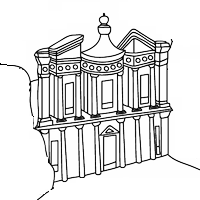"Panem and circenses" is the Latin phrase translated into French by "bread and games". It was written by the poet and writer Juvenal who lived during the Roman Empire.
Background of the quote
Juvenal was a poet, also a writer. Born in Aquino during the first century and died in Rome after 128, he is the author of 16 literary and poetic works written between 90 and 127. They were grouped together in a single work called "Satires", which means that His writings are called "Satires II", "Satires VIII", "Satires XIV", depending on the texts. Forgotten at his death, the complete book received renewed interest from the Middle Ages. It is considered today as a testimony of Roman life at the end of the 1st century AD.
The expression "Bread and Games" comes from "Satires X", probably written shortly after the beginning of the second century. It refers to the various political troubles that know the capital of the Empire between 81 and 117. Indeed from 81 the Empire is led by Domitian, brother of Titus. But as much Titus was appreciated by his people for his empathy, as Domitian behaves as intractable dictator, filling Rome with the blood of the opponents. The death of Domitian in 96 resulted in a succession of legal changes to the Senate, each subsequent emperor changing the strength of the Senate in relation to his own power. It is to criticize the apathy of the people of Rome that Juvenal uses the expression "bread and games".
Meaning
The expression "Panem and Circenses" is used by Juvenal to denounce the immobilism of the citizens of Rome against the intrigues of the leaders and the maneuvers they use to manage to contain the population. The idea is that as long as the people have something to eat and have fun, the powerful can do what they want, they will not be worried. Of course, this belittling vision of the state of mind of the people is contemptuous, which is in agreement with the work of the poet, critic, and that until the chosen name of the work: "Satires", a satire being by definition a criticism.
Was the criticism justified for the time?
Juvenal's vision is his own, obviously, but history shows us that indeed this dictatorial period undermined the Roman law established in previous decades. On the other hand, it is a historical fact that the ruling class financed grandiose festivals to ensure calm among the people, drowning in the illusion of happiness the mass of the population. There was always a pretext for organizing a party, it was mostly the celebration of a political or historical date, such as the commemoration of a battle or the advent of an emperor. As the slightest pretext was used to organize a festive event, we arrived at a total of 182 holidays over the year, more than one day out of two. And without counting the non-recurring holidays, ie those organized for a punctual event. These holidays had a dual purpose for the ruling class. We only assured the person who organized it a relative calm in the population, but it allowed him to enjoy a reputation of generosity all the more important to obtain that the organizer of the festival acted so as to restrict the powers Population. Thus the calm was obtained by these feasts, and the ruling class ensured the good will of the population, not calling into question the monarcho-dictatorial regime of the emperors of the early second century.
The festivities that were organized were essentially games or theatrical performances. The games were held in different arenas, the main ones being obviously those of the Colosseum. There were fights, hunts, reconstructions of scenes in the distant exotic provinces, not to mention the famous gladiatorial fights, which were not so numerous in view of all the shows that took place in these places.




















